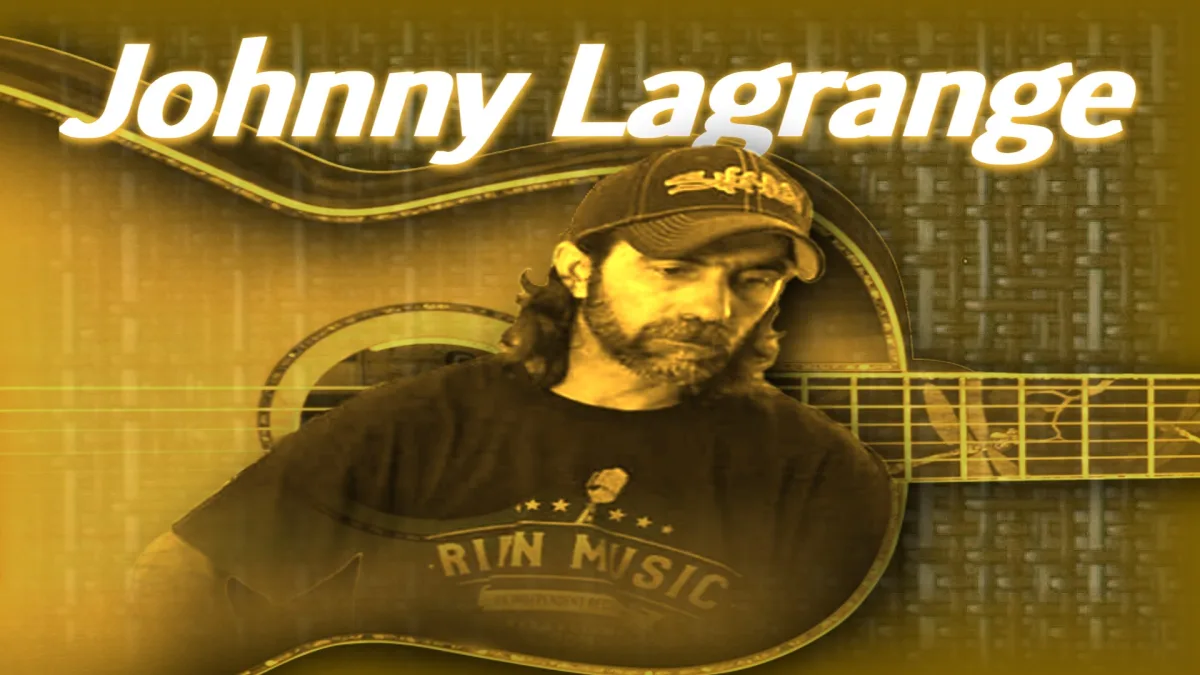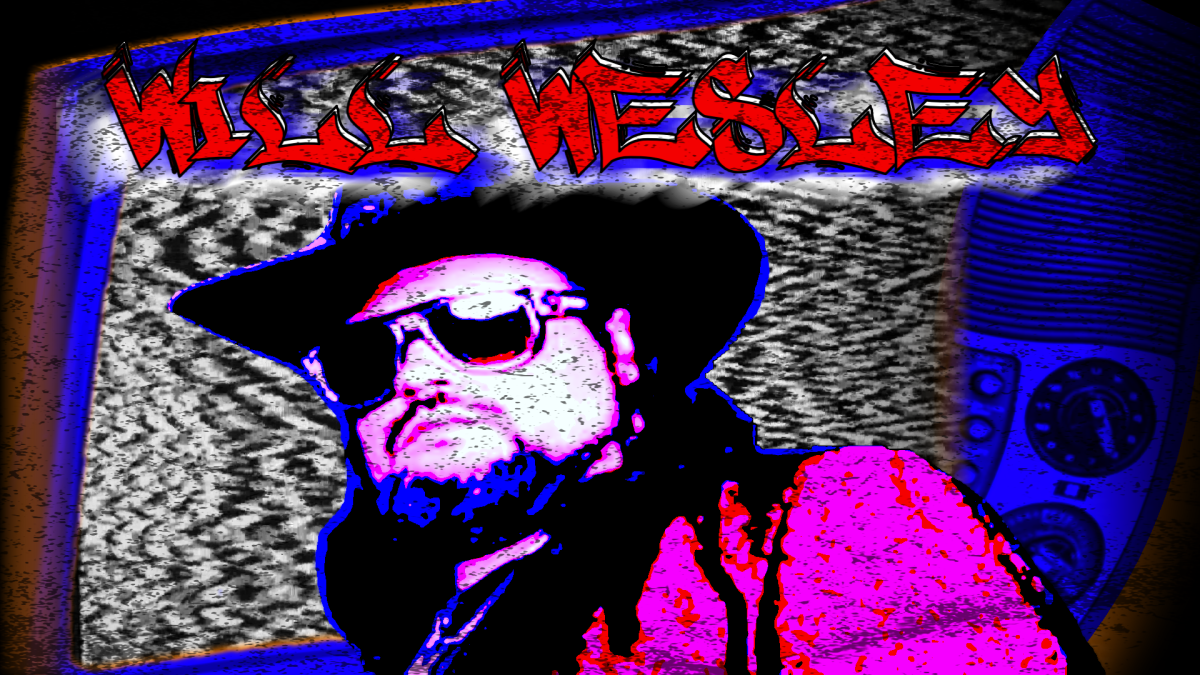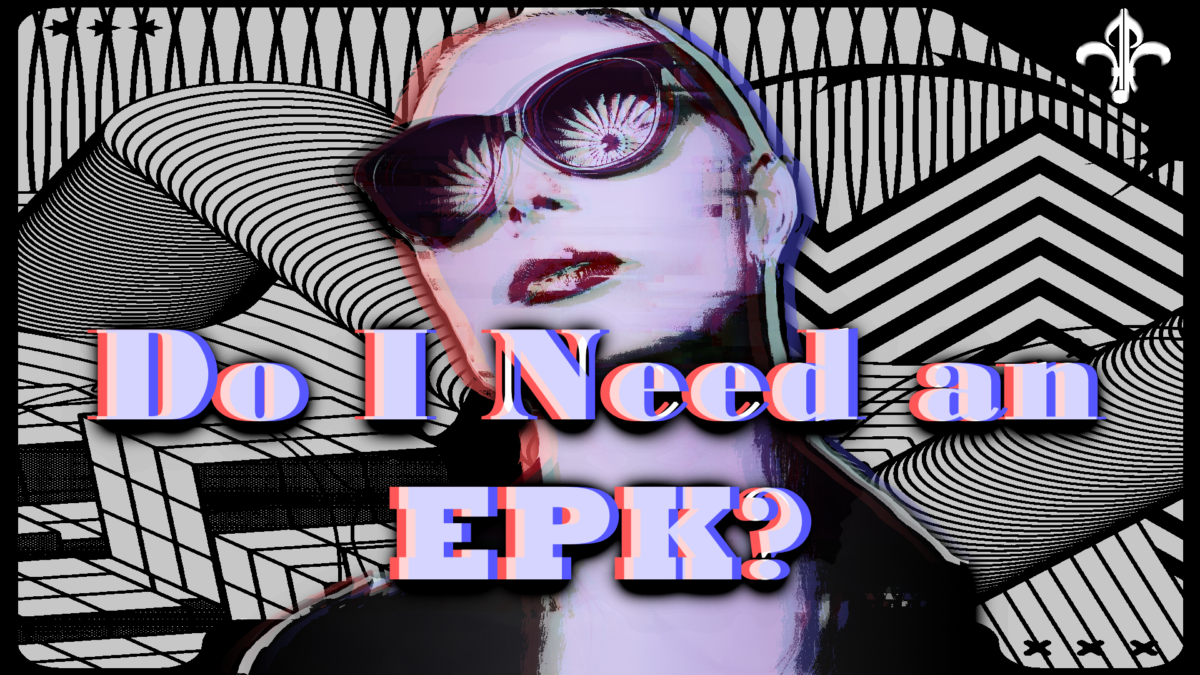If you head up the Mississippi River from New Orleans roughly forty miles, you’ll find yourself in Garyville, Louisiana. Here, the soundscape swirling in the waters is what makes them muddy. French influences of La-La and Zydeco meld with traditional country and other roots music. Like many, guitarist Johnny Lagrange holds fast to his origins in these genres. As a child, his first experience was seeing live music at a fair with his older cousins. Where chatter amongst the crowd was spoken in French, and Charles Sonier played the fiddle on stage.
At home were two older sisters and an older brother with tastes of their own to fill his ears. He gravitated toward his sisters’ pop music of the day like Madonna and Tears For Fears more so than the rap music to which his brother listened. Radio delivered his appreciation for musicianship with artists like Buddy Guy, Eric Clapton, and Stevie Ray Vaughn. A six-year-old boy would many times attempt to play these tunes on his little plastic guitar. Though he stood worlds away from creating the music he heard, he loved giving rise to sound. His foundation was already filled with many elements. As Johnny put it, “But then, you get your first blue jean jacket. And you get turned on to Testament and Iron Maiden. These guitarists are amazing!” The flood gates were instantly breached. Any membrane that disjoined traditional genres from the new style of rock had been permeated by the likes of Steve Vai and Yngwie Malmsteen.
Suddenly, the divergent interests of his original footing and heavy metal ruled radically different. Though they seemed to occupy equal parts in his mind at the time, it was the guitar that swayed him. Heavy metal, and thrash music for that matter, explored the possibilities of sound with guitar. Johnny grew fond of doing the same. As we spoke about this time in his life, I asked about his first “real” guitar. He smiled and pointed to one that sat on a stand behind me. He was fourteen years old when it came into his life. It would become his muse for the next few years and lead him to form a band called Seveth. Being underage, his band mates would sneak him in the back door of a bar out in Laplace just so he could perform, exiting the same way he came. Covers of Poison, Whitesnake, and Warrant, and a few of his own originals escorted him into maturity. But in all honesty, he was just a kid having fun. His interests would waver at times and hot rods did steal him away briefly.
Until one night when a friend directed him toward an open mic session at a local bar. Arriving with no set material or plan in place, he simply got up on stage alone and played every scale, every chord, and every shredder piece he knew. He will admit the performance was less than impactful. Being an unknown, the house band didn’t want to back him up. But it did grab the attention of their drummer. The two would go on to form the band Headrush. Johnny, in his twenties by this time, had picked up a drug habit along the way. And this became the fire that fueled a songwriting frenzy between them. In three months’ time, they wrote approximately ten hours-worth of originals. This pace and his lifestyle were both unsustainable though. In time, the consequences began to overshadow the benefits. He became a full-blown alcoholic and drug addict. No one wanted to play with him, and his life became consumed by his vices. He set down the guitar to get his life back in order and checked himself into a rehab facility.
During his path to sobriety, his wife brought him an acoustic guitar once owner by her father. For the longest time, he hadn’t even laid eyes on a guitar. He did still have a Peavy, somewhere, in a closet with no amp. But sobriety created a void, as it does in many, when a life in pursuit of intoxication no longer existed. The arrival of many introspective thoughts and questions filled him with a desire to express himself. The acoustic guitar was preceded by countless pages in a notebook of these questions, of lyrics in their most rudimentary form. Whether he realized it or not, he had been charged with finding himself on paper, in isolation. A time in his life where he felt as though he possessed direction or meaning of any sort had left him long ago. Things began to come together for him as he lifted those thoughts from paper and put them to melody using that that acoustic. The Bald Dog Project was born and a memento from his inner turmoil became known as the Begging for Change album. Johnny recalls, “Probably 95% of all Bald Dog Project songs are personal. All of the lyrics on the first two albums, that one (Begging for Change) and the (following) one with the full band… every one of those lyrics are poems, just pissed off and my healing so to speak, that I was just writing down. And then I took it and formatted it into songs. So, a lot of it is some real personal shit. When I was in rehab, that’s when I was healing, making amends to myself.”
During the early stages of Headrush, before the band had a name, his suggestion was that they call the band Bald Dog. But the other members objected. They resolved to put names in a hat. Guess which name was picked? Bald Dog! Yet they still protested, and the name Bald Dog was thrown out. Now that it was just him, that name would finally come to be. Johnny laughed as he explained, “Ain’t nobody but me. So, I have no fucking arguments. I’m naming this mother fucker Bald Dog! And just to piss them off, it’s going to be The Bald Dog Project. It’s like, how you gonna have a project with just one guy?”
The appeal of The Bald Dog Project lied within a unique sound facilitated by a deficit. Johnny couldn’t sing in a tone that was appropriate for acoustic music. It always came out with a definitively heavy metal tone. The mood set by his lyrics dealt with heavy emotions. And he had always been a fan of the metal genre. A friend by the name of John Walden, hearing the merit in this combination, gave words of encouragement. Walden, a drummer and bassist, invited Johnny to come open for his band at a gig. Alone again and having not been on stage in over ten years, a nervous Johnny took the offer. He recalls it as a terrible performance. But Walden still felt as though Johnny had something. He reassured him, and recommended he gather a drummer, a bassist, and a second guitarist. Johnny moved quickly, reaching out to Tommy Cox (Konstricted, Nothing Sacred) to join with an acoustic and he agreed. The two, joined by bassist Glenn “Chookie” Grady, began playing shows without a drummer. Finding their sound and gaining momentum, John Walden soon joined in on drums.
I interviewed Kirk Windstein once and he explained his own version of what he considered to be heavy. As Kirk clarified, “To me heavy is emotion. To me one of the heaviest Black Sabbath songs is Solitude. It’s just a two chord with a flute. Sonically, it’s not heavy at all. It’s a clean guitar, and you know, a flute. To me, heavy is not just volume, distortion, whatever. It’s emotion.” Explorations and reparations to make oneself whole again were the founding sentiments of The Bald Dog Project. In my opinion this would near top the list of weighted thoughts. Deeper into this vein, Johnny has begun pursuing a second concept by the name Blackwall Symphony. The songs currently being recorded enlist heavy metal components and fuse them with orchestral pieces. Choir, violins, horns and flutes all accentuate distorted, thrashing electric guitars. He said they have eight of the planned twelve songs down. And when they’re all complete, he will reveal them in a live performance. I look forward to feeling my pulse quicken as this spectacle thickens into a rich audio experience orchestrated by Louisiana’s own, Johnny Lagrange!
Author: David Trahan





















